ChurchNext offers several certification programs for people who want to become well-versed in particular topics. For example, we already have a Certification in Vestry Leadership and a Certification in Prayer Book Studies. Today, we’re announcing a new focused area of study: a Certification in Episcopal Catechismal Study.
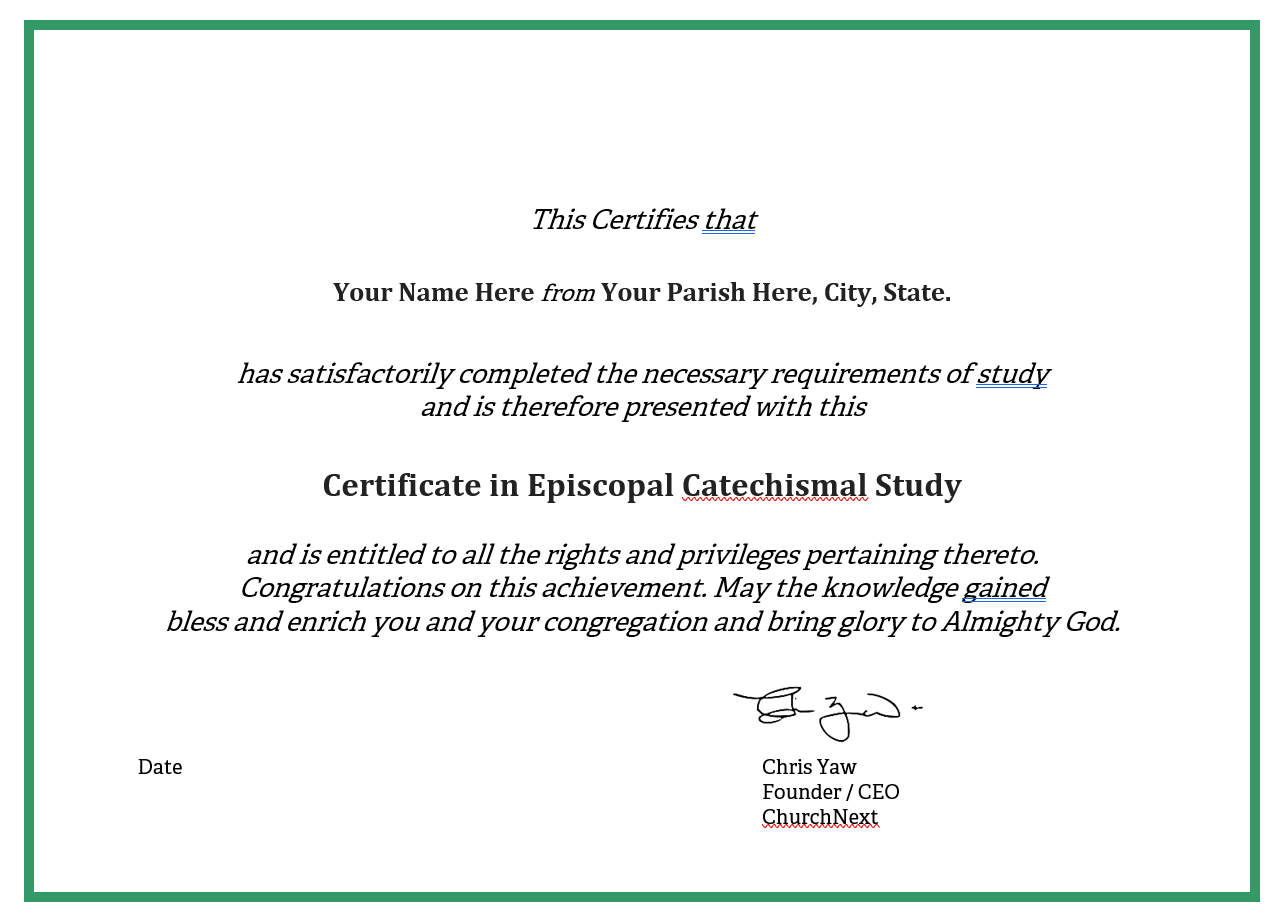
In this series of courses, participants become familiar with the topics covered in the Episcopal Catechism. At the end of this series, participants should be have a solid understanding of each section of the catechism. They should be able to open the prayer book to any section of the catechism and have a good sense of what beliefs and systems that section affirms.
Upon completion, either the individual taking the series or a mentor guiding their study may write hello@churchnext.tv and let us know you have completed your certification program. We will send your customized ChurchNext Certificate in Episcopal Catechismal Study.
Courses in this series include:
- Walk in Love 1: The Sacramental Journey For Individuals and For Groups.
- Walk in Love 3: Basic Beliefs For Individuals and For Groups.
- Walk in Love 4: The Church For Individuals and For Groups.
- Walk in Love 5: The Trinitarian Life For Individuals and For Groups
- Approaching Scripture with Vicki Garvey For Individuals and For Groups
- Creeds and Commitments with Jason Fout For Individuals and For Groups
- How to Pray with Christopher Martin For Individuals and For Groups
- Holy Communion 101 with James Hamilton For Individuals and For Groups
- Introducing Christian Baptism with Anne Kitsch For Individuals and For Groups
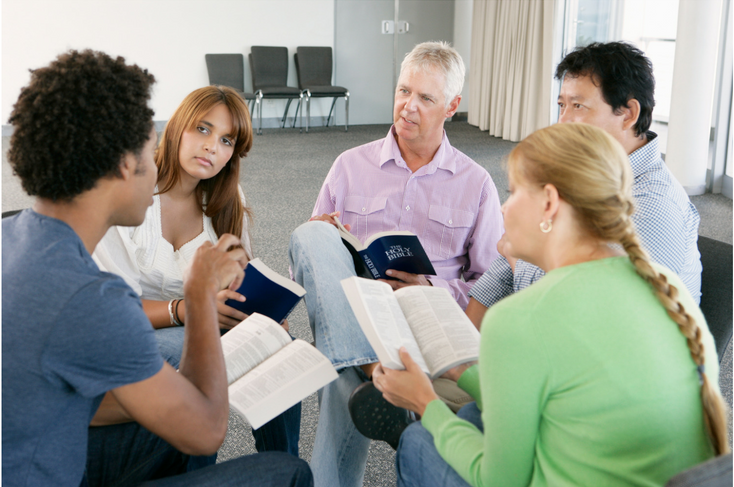
This series can be used in many ways
- It can help any Christian refresh their understanding of the basic tenets of the Episcopal approach to faith.
- It can help adults prepare for baptism.
- It can help young people prepare for confirmation.
- It can be a tool used in catechumenate programs.
- It can help new Episcopalians gain an understanding of our denomination’s approach to familiar Christian concepts.

Please note that all these courses are formatted for both individual and group study. They can, therefore, be adapted for use in many different contexts. Here are some examples:
- The For Groups courses can be the basis for group study, but they don’t have to be. You can combine them with other group activities.
- If a church is doing an in-person study series and someone has to miss a session, they can take a short online course on the topic — or even just relevant sections of a course — to keep up.
- Courses can be adapted for hybrid study programs in all sorts of ways — doing some classes at home and some in person, for example, or doing a program with at-home and in-person subgroups.
- The list could go on, but you get the idea. Be creative! These courses are adaptable tools.



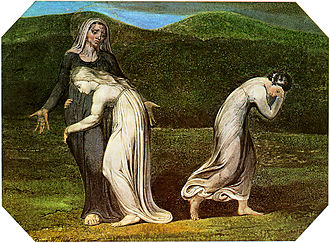
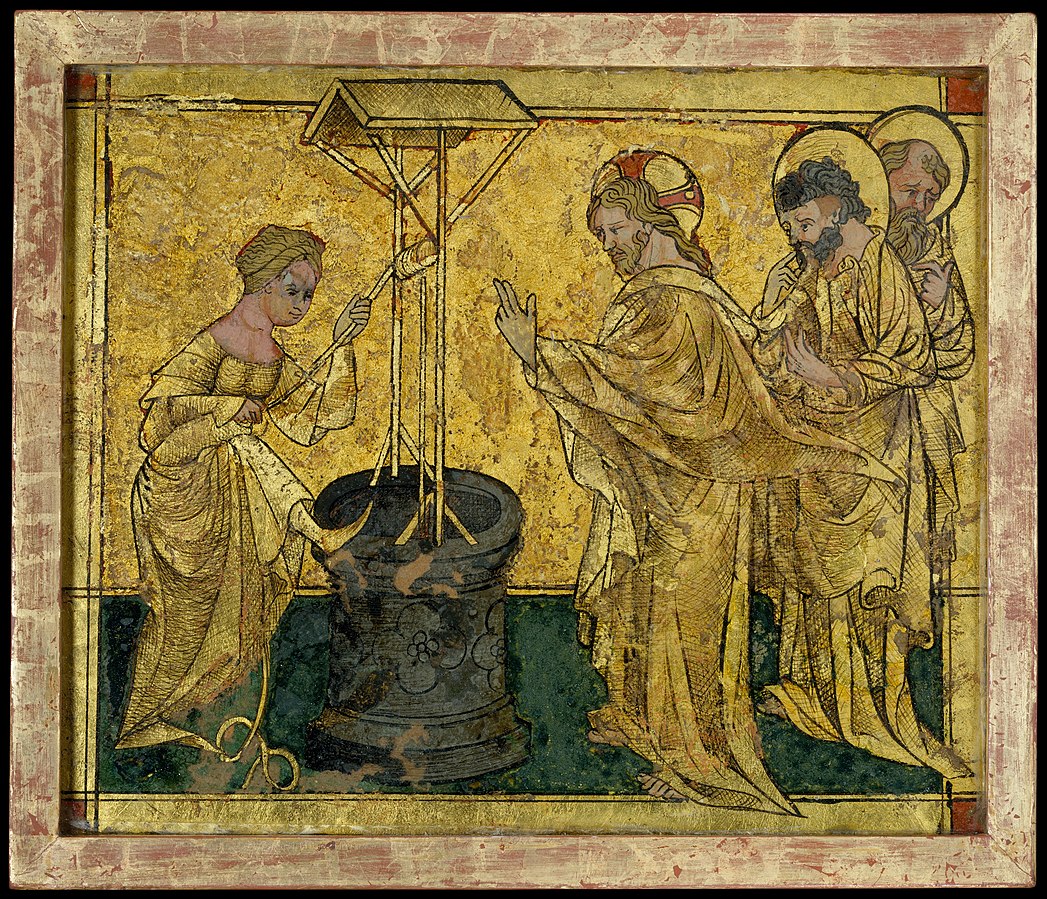

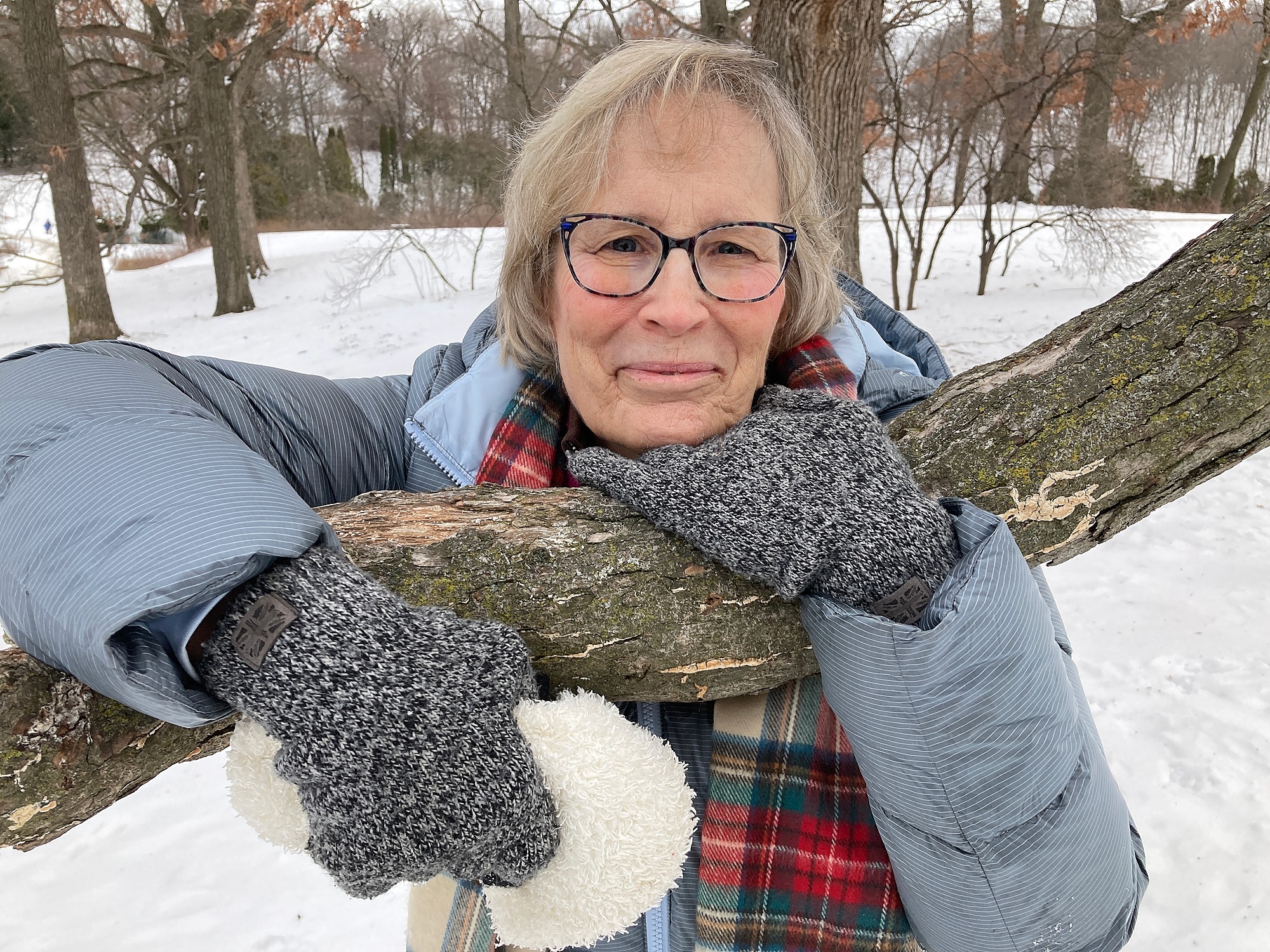 Our instructor, writer and Episcopal priest Lindsay Hardin Freeman (M.A., M.Div), has studied and written extensively on women in the Bible. She and her team of researchers were the first to count and profile all the women whose words are recorded in the Bible, resulting in the publication of
Our instructor, writer and Episcopal priest Lindsay Hardin Freeman (M.A., M.Div), has studied and written extensively on women in the Bible. She and her team of researchers were the first to count and profile all the women whose words are recorded in the Bible, resulting in the publication of